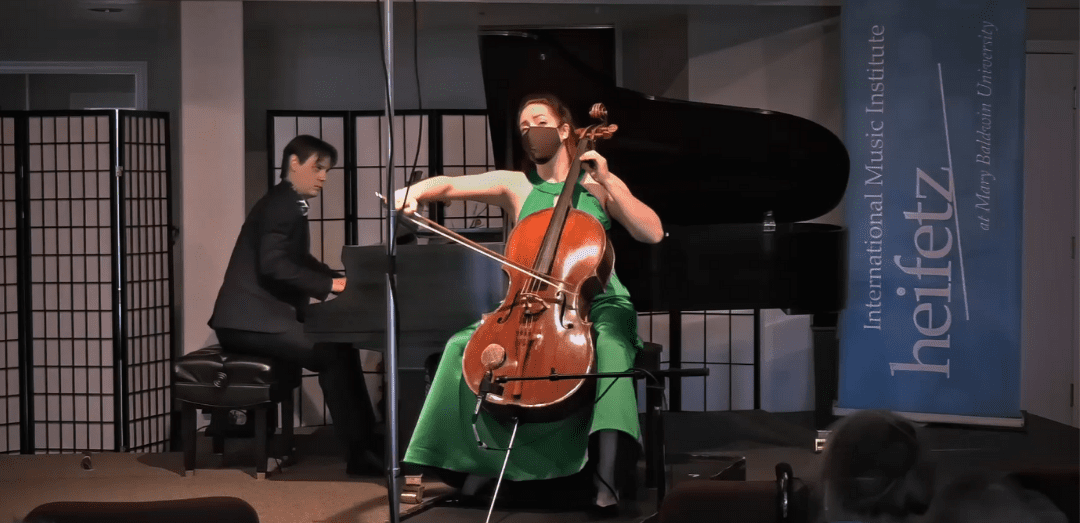
The remarkable French musical siblings Nadia (seated) and Lili (standing) Boulanger in 1913. The tragically short-lived Lili Boulanger (1893 – 1918) was the first woman to win the coveted Prix de Rome composing prize. For her part, Nadia was the runner-up for the award on a couple of occasions, but shifted her considerable talents towards conducting and teaching: From the New York Times: “After her younger sister’s death, Nadia moved away from composing toward pedagogy, becoming the most renowned composition teacher of the 20th century — if not of all musical history. Her pupils, the so-called ‘Boulangerie,’ included such luminaries-to-be as Aaron Copland, Philip Glass and Quincy Jones. The composer Virgil Thomson once described Boulanger as a ‘a one‐woman graduate school so powerful and so permeating that legend credits every U.S. town with two things: a five‐and‐dime and a Boulanger pupil.'”
Here’s another entry from “Mystics, Muses, and Mothers,” our springtime Heifetz Ensemble in Residence concert devoted to works either written or inspired by notable women, both real and fictional. Cellist Noémie Raymond-Friset and pianist Michel-Alexandre Broekaert offered up a set of pieces by one of the most influential female musicians of the 20th century: The French composer and conductor Nadia Boulanger, (1887-1979), far better known as a teacher of great composers than as a composer herself. Nonetheless, her works display remarkable originality, charm, and wit, as evidenced by these “Three Pieces” Boulanger composed in 1914. Enjoy!


